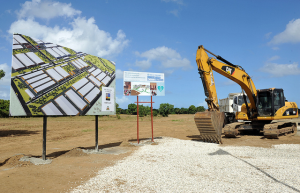Coming quickly on the heels of definitive evidence that the UN caused the cholera outbreak, the election results (however tainted) were announced last week. Mirlande Manigat, former first lady, and Jude Célestin, ruling party candidate, will head for the runoff – if the current results hold. This announcement was immediately greeted by protests.
In the midst of this tense pause between the initial announcement and the result of the recount, I want to comment on the UN involvement in Haiti’s election.
Haiti activists often discuss the UN Mission in Haiti (MINUSTAH) as a force for ill in the country. However, it can be difficult to substantiate particular instances of abuses like violent crowd control, as they actively target those who attempt to document these cases.
Two UN actions in recent weeks merit particular attention as examples of its negative influence. I want to comment on these particular actions because the UN doesn’t dispute their occurrence, yet they reveal perverse elements of the UN’s engagement with Haiti.
The first concerns a call placed by Edmund Mulet, MINUSTAH head, to Mirland Manigat and Michel Martelly. When 12 of 18 candidates called for boycotts following election day, Mulet attempted to manipulate public opinion by playing to the political ambitions of Manigat and Martelly. He placed calls to the candidates, promising each that he or she was the frontrunner and suggesting that they should rescind their calls for boycott.
The ploy worked (see the embedded video at the always excellent Haiti-Cuba-Venezuela Analysis blog in which Manigat describes the call). Both Manigat and Martelly dropped their call for boycotts, assured they would advance to the second round.
The violent anger of Martelly’s camp in response to his failure to advance comes, in large part, from his and his supporters’ belief that the government “modified the numbers” when it appeared Célestin would lose. Martelly’s unshakable confidence that the results were rigged against him stems at least in part from the private assurance he received from the UN that he was the frontrunner.
Which brings us to the second item I’d like to comment on. The UN has reacted to these protests by threatening to pull out if the initial election results aren’t respected. This is particularly striking given the fact that even the US Embassy has expressed skepticism about the announced results. With this threat, the UN is attempting to pressure the Haitian people to accept the election results (nevermind the fact that most would be glad to see them go).
This illustrates the nature of the UN’s involvement in Haiti: they intervene behind the scenes, spreading misinformation when it’s politically expedient, and then denounce the effects (i.e., the protests) of that misinformation when it becomes inconvenient.
The ultimatum issued by the UN to coerce acceptance of the election results is, in itself, a fascinating case study of MINUSTAH’s political tactics in the country. Their threat simultaneously depicts the UN mission as essential to stability in the country (“don’t reject the results, or else!”), and also gives one result (Célestin and Manigat advance) the aura of legitimacy, despite the fact that few Haiti watchers think it reflects the will of the people.
When the story of this election goes down in the history books, these low-profile interventions – calling candidates with misinformation and threatening to pull out as a piece of political theater – will likely be forgotten, replaced by images of burning tires and street protests.
But as a matter of day-to-day interference in the political sovereignty of the Haitian people, violations like these may have the larger role in shaping the outcome of Haiti’s 2010 elections.



 Posted by Nathan Yaffe
Posted by Nathan Yaffe 